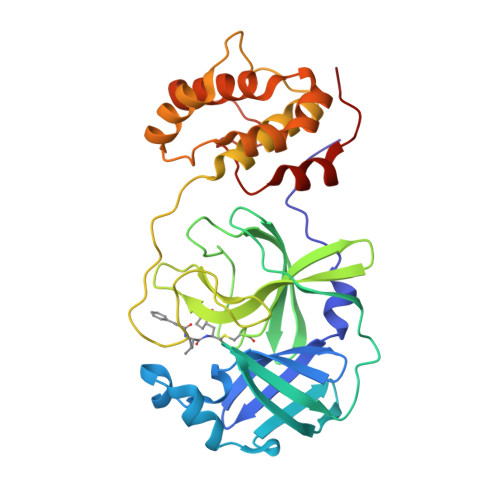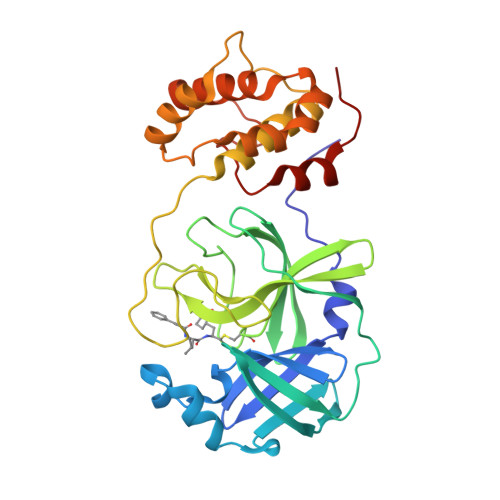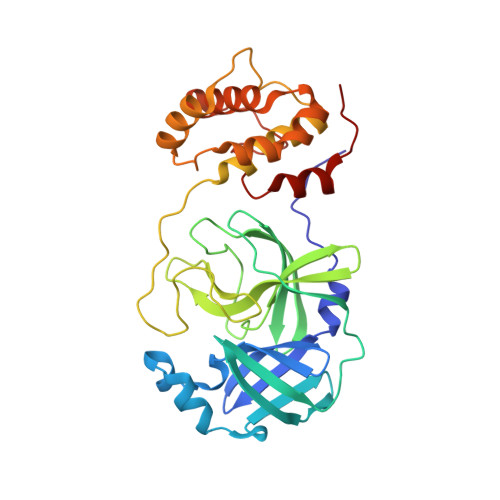Comprehensive Insights into the Catalytic Mechanism of Middle East Respiratory Syndrome 3C-Like Protease and Severe Acute Respiratory Syndrome 3C-Like Protease.
Wang, H., He, S., Deng, W., Zhang, Y., Li, G., Sun, J., Zhao, W., Guo, Y., Yin, Z., Li, D., Shang, L.(2020) ACS Catal 10: 5871-5890
- PubMed: 32391184
- DOI: https://doi.org/10.1021/acscatal.0c00110
- Primary Citation of Related Structures:
6LNQ, 6LNY, 6LO0 - PubMed Abstract:
Coronavirus 3C-like protease (3CL Pro ) is a highly conserved cysteine protease employing a catalytic dyad for its functions. 3CL Pro is essential to the viral life cycle and, therefore, is an attractive target for developing antiviral agents. However, the detailed catalytic mechanism of coronavirus 3CL Pro remains largely unknown. We took an integrated approach of employing X-ray crystallography, mutational studies, enzyme kinetics study, and inhibitors to gain insights into the mechanism. Such experimental work is supplemented by computational studies, including the prereaction state analysis, the ab initio calculation of the critical catalytic step, and the molecular dynamic simulation of the wild-type and mutant enzymes. Taken together, such studies allowed us to identify a residue pair (Glu-His) and a conserved His as critical for binding; a conserved GSCGS motif as important for the start of catalysis, a partial negative charge cluster (PNCC) formed by Arg-Tyr-Asp as essential for catalysis, and a conserved water molecule mediating the remote interaction between PNCC and catalytic dyad. The data collected and our insights into the detailed mechanism have allowed us to achieve a good understanding of the difference in catalytic efficiency between 3CL Pro from SARS and MERS, conduct mutational studies to improve the catalytic activity by 8-fold, optimize existing inhibitors to improve the potency by 4-fold, and identify a potential allosteric site for inhibitor design. All such results reinforce each other to support the overall catalytic mechanism proposed herein.
Organizational Affiliation:
State Key Laboratory of Medicinal Chemical Biology, College of Pharmacy and KLMDASR of Tianjin, Nankai University, No. 38 Tongyan Road, Haihe Education Park, Tianjin 300350, People's Republic of China.

















